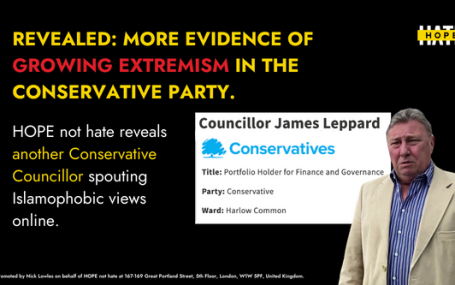HOPE not hate uses cookies to collect information and give you a more personalised experience on our site. You can find more information in our privacy policy. To agree to this, please click accept.
The tech giant is aiming to strengthen its stand against extremism by redirecting searches for extremism content to de-radicalisation videos.
YouTube has partnered with its parent Google and implemented the redirecting technique as part of a four-step initiative to combat online terror and the violent content sometimes used to recruit for groups like Islamic State/Daesh.
The company announced the method in the hopes that it will “provide more resources and more content that can help change minds of people at risk of being radicalised.”
Jigsaw, Google’s technology incubator, Moonshot CVE, an anti-extremism data company, Quantum Communications, a technology hub, and Valens Global, a private firm researching terrorist groups, developed the technique over several years.
The ‘Redirect Method’ involves a targeting tool that flags specific keywords entered in YouTube and then suggests a playlist of videos debunking the violent recruitment narratives.
Islamic State/Dasesh has used YouTube and social media platforms in the past to spread propaganda, brainwash and recruit followers. A relative of one of the London Bridge attackers said he had been influenced by YouTube videos.
“Terrorism is an attack on open societies, and addressing the threat posed by violence and hate is a critical challenge for us all,” the company said in a statement.
Online extremism has affected many tech giants in terms of profitability. The nature of modern online advertising means companies often don’t know where their ads are running. Hundreds of advertisers have already withdrawn their ads from video platforms due to the risk of it appearing alongside extremist content.
L’Oreal, Marks and Spencer and McDonald’s have all stopped investing on YouTube ads and Youtube is one of several companies now scrambling to find ways to combat extremism online.
Sleeping Giants and other campaigns have also sprung up in recent months, putting pressure on mainstream advertisers not to share their content on sites and media brands considered to be promoting hatred or intolerance.

Cllr James Leppard expressed Islamophobic sentiments and endorsed abuse of Sadiq Khan HOPE not hate can reveal further evidence of the growing problem of extremism…